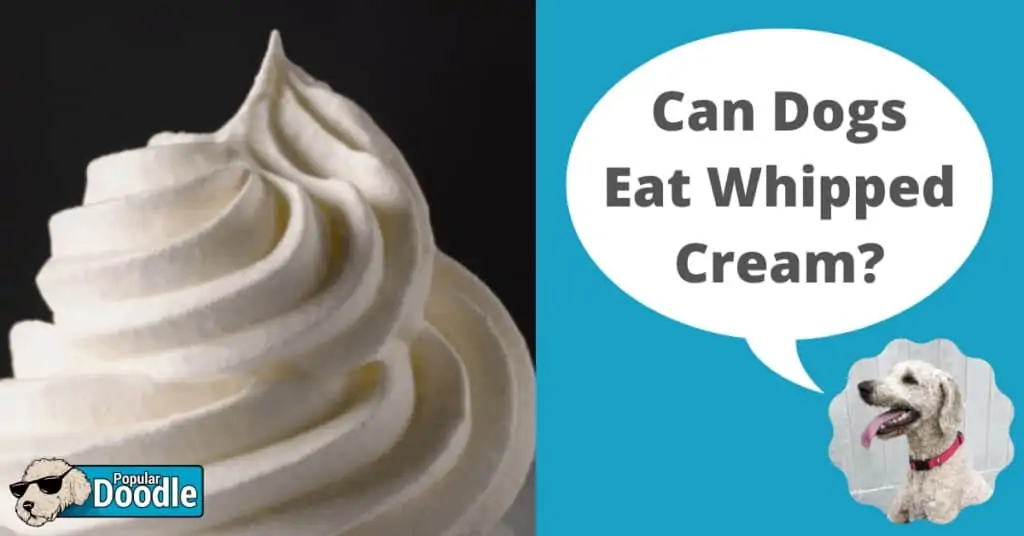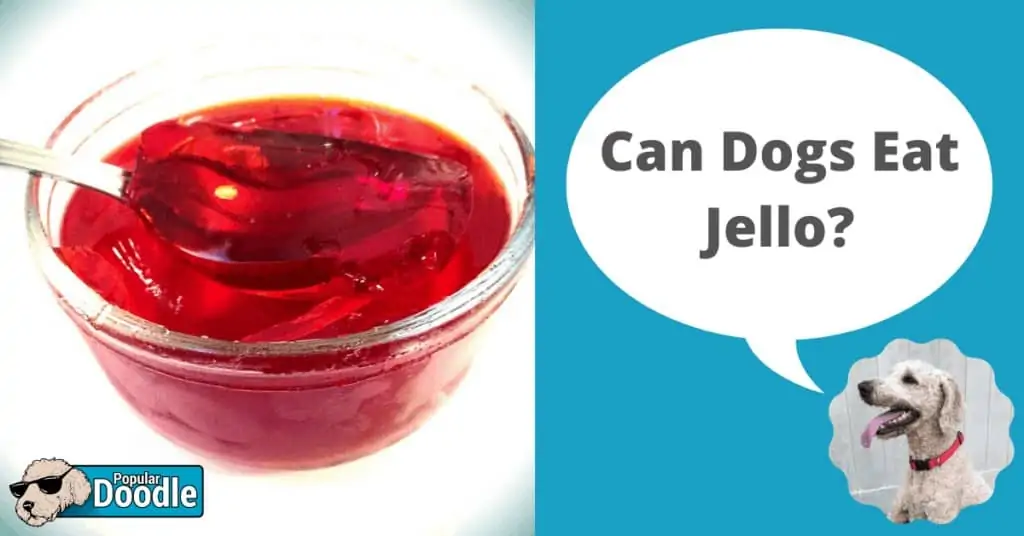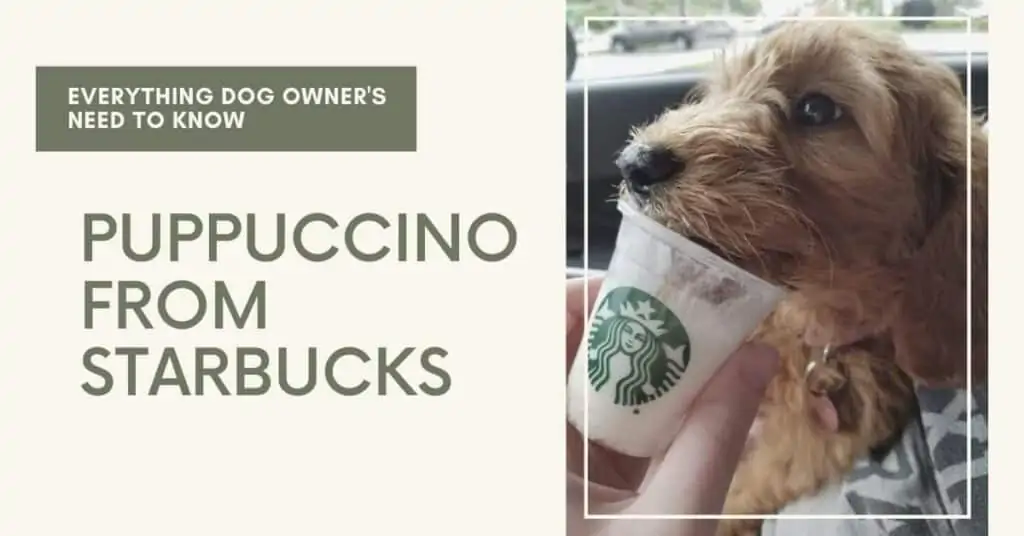
Who doesn’t love whipped cream? As a topping to fancy drinks or a heaping bowl of ice cream, this sweet treat is bound to make dog owners wonder whipped cream is safe for our pups. Let’s learn about the pros and cons of whipped cream for dogs!
Can dogs eat whipped cream? Whipped cream is usually not dangerous to share with your dog. Keep in mind, whipped cream is essentially just fat and sugar so it’s not very healthy. On top of that, many dogs are sensitive to dairy products due to being lactose intolerant. For those reasons, we recommend feeding whipped cream to your dog very sparingly and only in small quantities.
It’s important to remember, that even with the best of intentions, accidents happen and dogs can easily eat things they shouldn’t. Unfortunately, even if those accidents aren’t fatal, they can result in huge, unexpected veterinary expenses. That’s why we recommend all responsible dog owners get a free, online pet insurance quote from Healthy Paws.
Is Whipped Cream Good For Dogs?
No, there are basically zero health benefits to your dog consuming whipped cream. Whipped cream is very high in sugar, fat, and calories. It has over 50 calories in just a single tablespoon. This is one of the reasons you shouldn’t be feeding your dog whipped cream regularly. Doing so can quickly lead to weight management issues and related health concerns like diabetes. If your dog is already overweight or has diabetes, you should avoid whipped cream altogether.
Having whipped cream often can also lead to cavities and dental issues for your pup. Again, these aren’t things to be concerned about for a once in a blue moon treat, but those who regularly share it with their dog should keep it in mind.
Is Whipped Cream Bad for Dogs?
While whipped cream usually won’t harm dogs, the biggest problem is the dairy. Many dogs are lactose intolerant and their sensitivity to dairy varies. The most important thing to consider before feeding your dog whipped cream is do you know how sensitive they are to dairy products? If you choose to feed whipped cream to your dog, do so in small quantities and monitor them afterwards for reactions. It could give them an upset stomach or cause diarrhea.
If your dog shows no negative signs to dairy, you can feel more comfortable sharing with them. However, still keep portions very tiny and share only rarely as dairy is still not good for dogs, not to mention the fat and sugar packed inside every bite of whipped cream!
Whipped Cream Alternatives for Dogs
As a healthier alternative to whipped cream, try feeding your dog any of these foods instead:
- Dog-Friendly Ice Cream (or these homemade dog popsicles!)
- Almond Butter
- Raspberries (or other dog-friendly fruits!)
- Almond Milk
Varieties of Whipped Cream & Whipped Cream Products:
Cool Whip
It depends, but we don’t recommend it. The same rules apply for cool whip as for whipped cream. Know your dog’s ability to tolerate dairy. Only share rarely or, better yet, not at all.
Whipped Cream From Starbucks
Yes, we love seeing pictures of dogs enjoying their Puppuccinos! If you don’t know about the Puppuccino from Starbucks, check out the linked article to learn more. The same rules apply to Starbucks whipped cream as for normal, store-bought whipped cream. If you choose to share it with your pup occasionally, it likely won’t hurt them but simply don’t make a habit out of it and make sure to pay attention to how your dog handles dairy products so you aren’t giving them an upset stomach each time!
In Conclusion: Can Dogs Have Whipped Cream?
Whipped cream is usually safe for dogs, but we still don’t recommend feeding it to them due to the general unhealthiness and presence of dairy. However, if you know your dog doesn’t have a high sensitivity to dairy products and you only share every once in awhile, there likely isn’t much harm in doing so.
Disclaimer: We are not veterinarians and this article should not be taken as medical or veterinary advice. If you have any questions about your pet’s health or dietary needs, please contact your local veterinarian.









